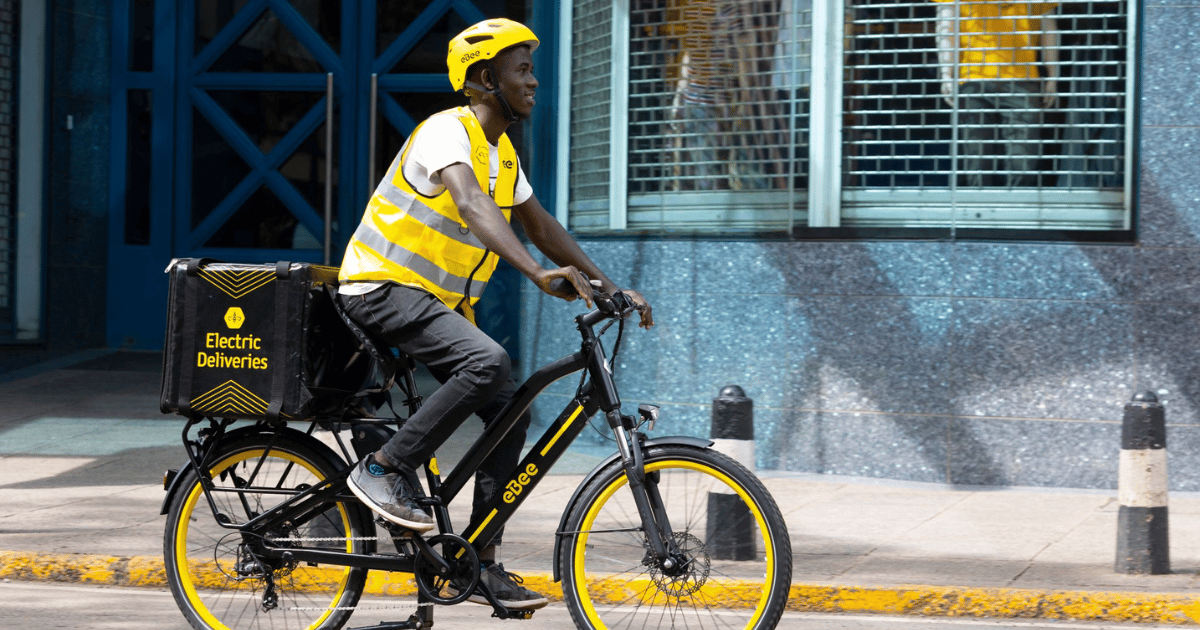- Mobility Rising
- Posts
- eBee targets Tanzania & Ethiopia expansion
eBee targets Tanzania & Ethiopia expansion

From the newsletter
Electric bicycle company eBee Africa is planning to expand into Tanzania and Ethiopia to grow sales. In an interview with Mobility Rising, eBee Africa Managing Director Maarten Fonteijn says the company has already done market research in the two countries as it mulls its next moves. eBee, founded in 2021 by a group of Dutch investors, currently operates in Kenya and Uganda.
eBee pioneered electric bicycles in Kenya four years ago before expanding to Uganda. It says that while its immediate focus will continue to be on the two countries, it has begun preliminary work for further expansion into new markets.
“We have already visited Ethiopia and Tanzania and even done market research and other stuff because for a lot of reasons, there is a lot of potential in those two markets as well,” said Mr Fonteijn.
More details
eBee was co-founded by Jaap Maljers, Isidoor Maljers, Joost Boeles and Sten van der Ham and manufactures, sells and rents electric bicycles. It also operates delivery fleets for platforms including Jumia, Glovo, and Bolt.
The company makes two models of electric bicycles; the Nyuki, its premium brand that goes for KES 125,000 ($970) and the EBX, which sells for KES 105,000 ($815). “We sell our bicycles, we rent them to businesses, and we operate this fleet of delivery riders,” says Mr Fonteijn.
When it began in Kenya, the company initially focused on business-to-customer sales and opened a number of retail outlets in Nairobi and a showroom in Mombasa. As part of a restructuring of its operations, the company is now mainly focusing on business-to-business clients to power its growth even as it prepares to enter new markets.
Tanzania has a population of nearly 70 million people, the second largest in the East African Community (EAC). The country’s economy has been growing steadily in recent years, with a number of EV companies like Spiro entering the market. However, there is negligible presence of electric bicycles, which presents an opportunity for eBee to disrupt the market.
Unlike Tanzania, Ethiopia has been much more proactive in trying to promote the uptake of EVs. The country banned the importation of fuel vehicles in January last year. A local industry of electric motorcycles, scooters, cars and three-wheelers is emerging. With a population of more than 132 million people, coupled with cheap electricity, Ethiopia could be a big market for the electric bicycle company.
Demand for electric bicycles is expected to grow in Africa especially as prices of batteries and motors eases. At the same time, African cities are increasingly building cycling lanes, which will facilitate effective use of bicycles. However, commercial considerations are expected to remain the main drivers of electric bicycle adoption as businesses use them to make quick deliveries over short distances.
Our take
eBee has already identified a shift from a B2C to a B2B focus as its primary growth driver in Kenya and Uganda. It should double down on this model in the new markets.
The successful adoption of electric bicycles relies on supportive infrastructure like dedicated cycling lanes. eBee should proactively engage with urban planners and government ministries in both Tanzania and Ethiopia to advocate for policies that favor light electric vehicles.
The high price of electric bicycles makes a strong after-sales service essential for building trust and ensuring the longevity of the products. This includes having readily available spare parts, skilled local technicians for repairs, and a clear maintenance schedule for its B2B fleets.